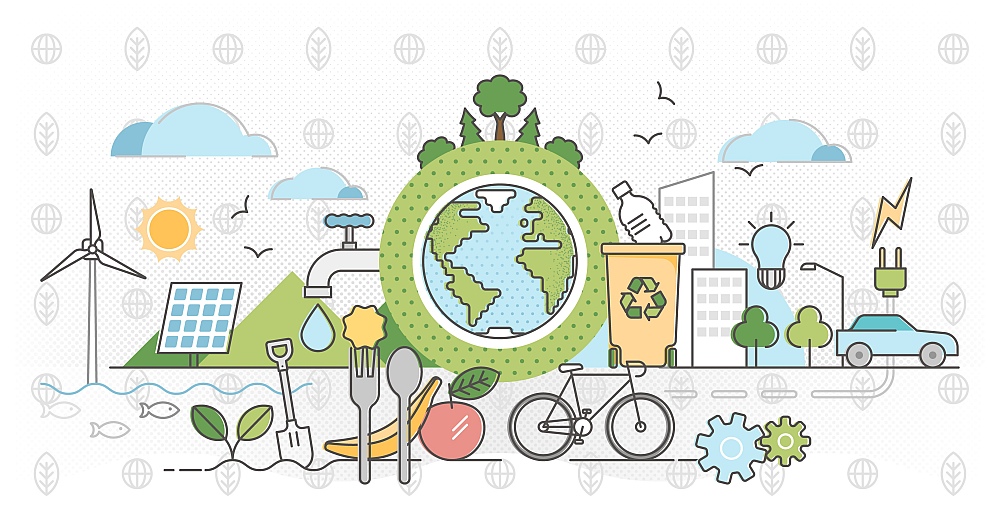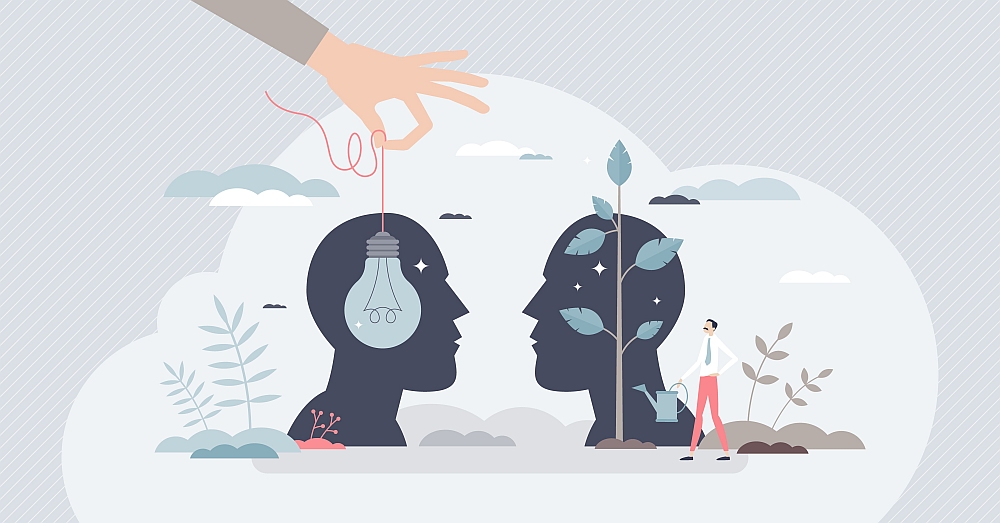Sustainable Bioeconomy
The bioeconomy offers the opportunity to make the economy more sustainable and in harmony with nature conservation and environmental protection. At the heart of the bioeconomy lays the production and use of biological resources to provide products, processes and services in all economic sectors. In doing so, the bioeconomy relies on the potential of plants, animals and microorganisms.
Industries whose applications can be counted as part of the bioeconomy deal, for example, with the production of biomass, materials and energy, or the processing of biomass into food and animal feed. These include agriculture, the timber industry and fisheries, among others. Traditional areas of the bioeconomy also include the use of biological processes and applications from biotechnology, the production of biological fibers, polymers, chemical and pharmaceutical products, and energy sources produced from biomass.
In recent years, the understanding of the bioeconomy has changed, becoming much broader and increasing in complexity. It underpins the transformation of the economy and society, which is necessary in many respects, with measures that contribute to the sustainable extraction, use and recycling of materials.

Bioeconomy strategy
In the German policy landscape, the bioeconomy is the lead responsibility of the Federal Ministries of Education and Research (BMBF) and Food and Agriculture (BMEL). Their remit includes the creation and implementation of the National Bioeconomy Strategy (NBÖS). Within the NBÖS, the German government sets out the guidelines and objectives of its bioeconomy policy as a task for almost all of its departments. These goals are continuously underpinned by concrete measures for implementation. The strategy creates the conditions for strengthening the bioeconomy in Germany, promoting sustainable innovations for a transformation of the economy and thus securing Germany as a location for business and science. With the NBÖS, the German government is acknowledging its global responsibility in the internationally networked bioeconomy. Operationally, the implementation of the strategy is accompanied by an interministerial working group.
The Bioeconomy Council's view of the bioeconomy
The bioeconomy serves to implement the United Nations Sustainable Development Goals (SDGs) and can make a relevant contribution to a transformation of the economy and society that is oriented toward these sustainability goals. Shaping this transformation is a complex task in which ecological, economic and social aspects must be taken into account and coordinated.
Depending on the stakeholder group, social or economic sector, there are different views on which UN sustainability goals the bioeconomy can contribute to and how this can be shaped. The question arises whether economic growth can be maintained in its current form or whether a change in economic practices, resource conservation and sufficiency is needed. Each of these decisions has different consequences for the design of the bioeconomy. The Bioeconomy Council advises the German government on the path toward a biobased economy. The Council's current 18 members cover the knowledge-based bioeconomy in its breadth of content with their expertise, search for ways to find sustainable solutions and place their findings in a global context.
Making the bioeconomy accessible to everyone
Precisely because of the many possibilities and points of connection, the concept of the bioeconomy and the understanding of bioeconomy is often difficult to convey to the general public. Even among experts, it is important to clarify which assumptions are irreconcilable positions or different views can be at least partially resolved. One way to achieve this can be to constructively incorporate the individual different focal points of the various existing bioeconomy strategies into dialogue and participation processes. It is also a matter of allowing different points of view and using them to accompany the path to a sustainable society. Particularly when it comes to ecological, ethical and social issues, social innovations and a sustainable transformation of markets can also be advanced under such a holistic understanding of the bioeconomy.
In the first working paper of the Bioeconomy Council you can learn more about the priorities of the Council and its working methods.

Understandings about the bioeconomy
Technological solution approach: Here, the economic and technological potentials of the bioeconomy are at the center of the approach. Accordingly, new biotechnological solutions can generate important innovations and provide an economic boost.
Resource turnaround: Renewable and renewable resources such as biomass should increasingly help to make a significant contribution to sustainability by replacing fossil resources. In the sense of a resource turnaround, it is also about circular economy and resource conservation.
Consideration of Planetary Boundaries: Exceeding the Earth's ecological limits endangers the stability of the ecosystem and the livelihoods of humankind. To prevent this, ecologically compatible use of natural resources should be pursued and interactions between economic utilization and ecological cycles should be implemented more strongly. In this context, the valorization of all organisms is discussed, which also includes concerns and rights of non-human living beings and highlights their value and importance for the existence of human societies.
The Bioeconomy Council has set itself the task - against the background of sustainability - of discussing and taking into account all the different understandings of the bioeconomy and incorporating them into its recommendations.
Conclusion
The bioeconomy is a complex topic driven by many different stakeholders. Even though there are different understandings and interests in the bioeconomy, it is indispensable when it comes to making the economy more sustainable and fit for the future. The task of the Bioeconomy Council is to help the German government develop recommendations in this regard. The aim is to shape the National Bioeconomy Strategy in such a way that a transformation towards a sustainable, biobased economy succeeds.
